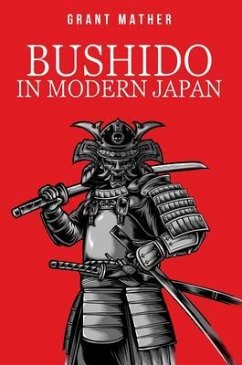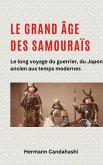I. Introduction
There has always been something that I have found interesting about Japan, that
has always evoked a sense of amazement about the country. There are many things that I
find admirable about Japan as a whole, and it will be my goal here to interact with and
explain those interests to a greater degree. Most of what I find interesting and admirable
about Japan is the nation's sense of honor, what loyalty means and in general how the
Japanese conduct themselves in regard to their country. I believe that the Japanese's love
for their country goes beyond mere nationalism and is of a scope that is much greater and
profound. Where does the intense loyalty that one finds in some Japanese people stem
from? I believe that the theory of bushido or the code of the warrior was incredibly
influential in what it means to be Japanese. After the Meiji Restoration, the samurai no
longer existed as a class in the formal sense of the word, and while their way of life was
essentially destroyed, their values and code of honor would continue to live on in the
hearts and souls of certain Japanese individuals as a nostalgic reminiscence for the past.
To the best of my ability I plan to give a summary of the thought of bushido, how
it is formulated and what exactly it means. I will discuss the samurai way of life, and I
hope that in doing so I will show how many of the traits emphasized in bushido continue
to be emphasized through a reminiscence for the past. As a primary source I have the
Hagakure, which one author describes as an "epitome of Bushido''"'1. I feel that with this
and a number of secondary sources, I should be able to give a good exposition of what
There has always been something that I have found interesting about Japan, that
has always evoked a sense of amazement about the country. There are many things that I
find admirable about Japan as a whole, and it will be my goal here to interact with and
explain those interests to a greater degree. Most of what I find interesting and admirable
about Japan is the nation's sense of honor, what loyalty means and in general how the
Japanese conduct themselves in regard to their country. I believe that the Japanese's love
for their country goes beyond mere nationalism and is of a scope that is much greater and
profound. Where does the intense loyalty that one finds in some Japanese people stem
from? I believe that the theory of bushido or the code of the warrior was incredibly
influential in what it means to be Japanese. After the Meiji Restoration, the samurai no
longer existed as a class in the formal sense of the word, and while their way of life was
essentially destroyed, their values and code of honor would continue to live on in the
hearts and souls of certain Japanese individuals as a nostalgic reminiscence for the past.
To the best of my ability I plan to give a summary of the thought of bushido, how
it is formulated and what exactly it means. I will discuss the samurai way of life, and I
hope that in doing so I will show how many of the traits emphasized in bushido continue
to be emphasized through a reminiscence for the past. As a primary source I have the
Hagakure, which one author describes as an "epitome of Bushido''"'1. I feel that with this
and a number of secondary sources, I should be able to give a good exposition of what
Dieser Download kann aus rechtlichen Gründen nur mit Rechnungsadresse in A, D ausgeliefert werden.









